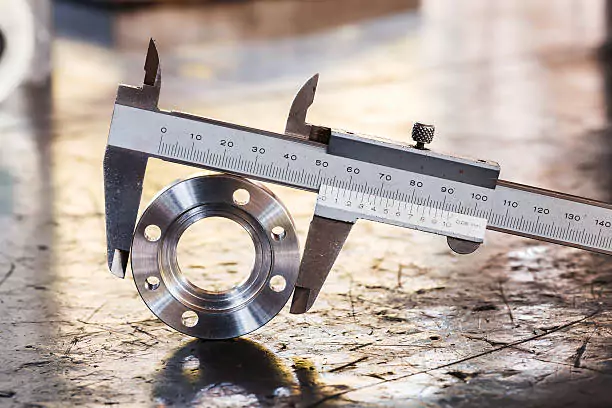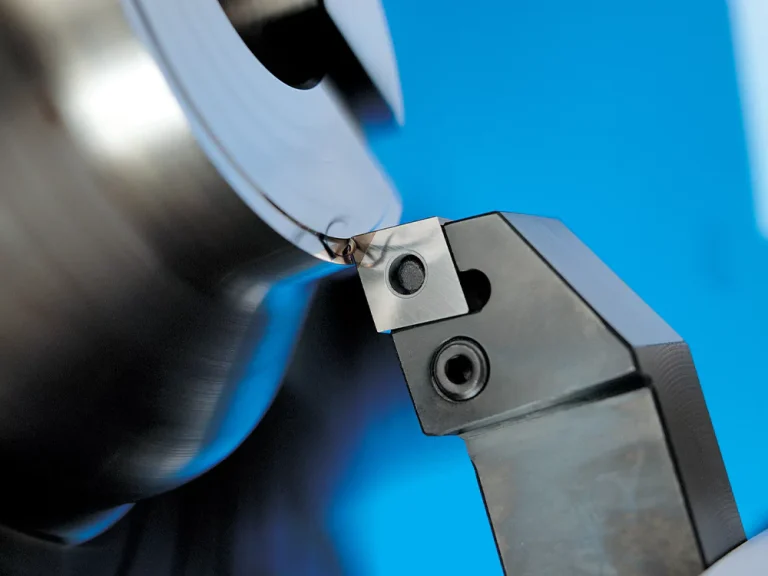Metrology is often overshadowed by more popular scientific disciplines, yet it plays a crucial role in almost every aspect of modern life. This science of measurement is essential for ensuring accuracy, consistency, and reliability across various industries, from manufacturing and healthcare to scientific research and trade. In this article, we will delve into the core elements of metrology, its impact on different sectors, and why it is indispensable in today’s world.
Understanding the Essence of Metrology
Definition and Importance of Metrology
Metrology, defined as the science of measurement, encompasses both theoretical and practical aspects of achieving accurate and consistent measurements. It serves as the foundational framework for various processes and industries, ensuring that measurements are reliable and standardized. The importance of metrology is vast, as it underpins scientific research, industrial production, and quality control, enabling advancements and innovations that improve quality of life.

Differentiation from Meteorology
Despite sounding similar, metrology should not be confused with meteorology, the study of atmospheric phenomena and weather patterns. While meteorology involves predicting weather conditions, metrology focuses on the precision and accuracy of measurements in diverse domains such as physics, engineering, and commerce. Understanding this distinction is essential for appreciating the unique contributions of metrology.
Universal Understanding of Measurement Units
A universal understanding of measurement units is critical for international collaboration and trade. The International System of Units (SI) forms the basis for most measurements globally, ensuring consistency and uniformity. These standardized units, including meters, kilograms, and seconds, facilitate seamless communication and reduce discrepancies in measurements across different countries and industries.
A Reliable Foundation
Traceability
Importance of Traceability
Traceability in metrology refers to the ability to trace measurements back to internationally recognized standards. This concept is vital because it ensures that measurements are accurate and comparable worldwide, maintaining the integrity of data and processes across different sectors.
Establishing a Chain of Calibration
Establishing a chain of calibration involves creating a documented lineage of calibrations for measurement instruments, linking them to definitive standard references. This chain must be maintained meticulously to ensure the reliability and accuracy of measurements, enabling organizations to trust the data they generate and utilize.
Accuracy
Definition of Accuracy
Accuracy in metrology denotes the closeness of a measured value to the true value of the quantity being measured. High accuracy is fundamental for reducing errors and deviations, thus ensuring reliable and valid results. Inaccurate measurements can lead to significant consequences, particularly in fields like healthcare and engineering.
Minimizing Errors and Deviations
Minimizing errors and deviations is crucial for achieving accuracy in measurements. This involves using well-calibrated instruments, adhering to standardized procedures, and periodically verifying measurement equipment. Error minimization enhances the reliability of data and supports high-quality outcomes.
Reproducibility
Definition of Reproducibility
Reproducibility refers to the ability to obtain consistent results when measurements are conducted under varying conditions, such as different locations or by different operators. This aspect of metrology is essential for confirming the reliability and consistency of measurement processes.
Standardized Procedures
Implementing standardized procedures helps in achieving reproducibility. By following detailed protocols and guidelines, organizations can ensure that measurements are performed consistently, contributing to reliable and comparable results across different scenarios.
Framework for Reliable Measurements
Establishing Reference Points
Establishing reference points serves as a benchmark for all measurements, ensuring they are anchored to globally recognized standards. These reference points facilitate the accurate calibration and verification of measurement instruments, thereby maintaining the quality and reliability of measurements.
Applications in Various Fields
Metrology finds applications in a myriad of fields, from manufacturing to healthcare. In manufacturing, precise measurements ensure product quality and safety. In healthcare, accurate measurements are critical for diagnostics and treatment. The consistent application of metrological principles across various domains enhances innovation and societal progress.
How Metrology Affects Industry

Enhancing Quality Control and Quality Assurance
Importance in Manufacturing
In the manufacturing industry, metrology is integral for quality control and assurance. Accurate measurements ensure that products meet specified standards, leading to higher-quality outputs and customer satisfaction. The implementation of metrological practices in manufacturing helps in minimizing defects and optimizing production processes.
Tools and Methods for Accurate Measurements
Manufacturers use a range of tools and methods for accurate measurements, including coordinate measuring machines (CMMs), laser trackers, and precision gauges. These tools are calibrated to traceable standards, ensuring their accuracy and reliability in quality control processes.
Benefits for Manufacturers
Accurate and reliable measurements offer numerous benefits for manufacturers, including improved product quality, increased efficiency, and reduced waste. These advantages translate into cost savings and enhanced competitiveness in the global market.
Advancing Scientific Research and Innovation
Role in Scientific Research
In scientific research, metrology provides the backbone for precise and reproducible measurements, which are critical for validating hypotheses and theories. Accurate measurements enable scientists to generate reliable data, facilitating breakthroughs and advancements in various fields like physics, chemistry, and biology.
Impact on Experiments and Data Analysis
Metrology ensures that experiments are conducted with high precision, leading to valid and reproducible results. Proper data analysis depends on accurate measurements, and metrological principles help in interpreting experimental outcomes with confidence, driving scientific progress and innovation.
Enabling Global Collaboration
Mutual Recognition Arrangements (MRA)
Mutual Recognition Arrangements (MRA) are agreements between countries to recognize each other’s metrological standards and calibration certifications. These arrangements simplify trade and ensure that measurement tools and processes are accepted internationally. By adhering to MRAs, industries benefit from reduced trade barriers, enhanced product compatibility, and streamlined compliance procedures. Effective MRAs foster international cooperation, enabling seamless integration of goods and services across global markets.
Facilitating Interdisciplinary Research
Metrology is pivotal in interdisciplinary research, where precise measurements are required across various scientific domains. By providing standardized measurement techniques, metrology assures the reliability of data collected in collaborative projects involving fields like biology, physics, and engineering. This standardization is crucial for integrating findings from different disciplines, leading to comprehensive and robust scientific conclusions. Effective interdisciplinary research, supported by metrological principles, drives innovation and addresses complex global challenges.
Supporting Healthcare and Medical Advancements
Clinical Diagnostics
Accurate measurements are crucial in clinical diagnostics, where precise quantification of biological markers can determine disease presence and progression. Metrology ensures that diagnostic tools are calibrated against standard references, leading to accurate and reliable test results. This reliability is vital for diagnosing diseases like diabetes, cancer, and cardiovascular conditions, impacting treatment decisions and patient outcomes. Accurate diagnostics supported by metrology enhance the quality of healthcare provided to patients.
Pharmaceuticals
In pharmaceuticals, metrology ensures the precise measurement of ingredients and dosages in drug formulation. Accurate measurements are essential for maintaining the efficacy and safety of medications. Calibration of pharmaceutical equipment to traceable standards guarantees that drugs meet regulatory requirements, protecting public health. Metrology supports rigorous quality control processes in pharmaceutical production, ensuring that medications are consistent, safe, and effective for consumers. This precision is critical for the development of new drugs and therapies.
Ensuring Fair Trade and Consumer Protection
Role in Trade and Commerce
Metrology plays a crucial role in trade and commerce by preventing inaccurate transactions and ensuring fair trade practices. Accurate measurements in trade, such as weight, volume, and length, are essential for determining the value of goods and services. Metrology ensures that these measurements are standardized and comparable, reducing disputes and enhancing trust between trading partners. Regulatory bodies enforce calibration laws to maintain fairness in trade, protecting both consumers and businesses from fraudulent practices.
Preventing Inaccurate Transactions
Preventing inaccurate transactions involves rigorously calibrating measurement instruments used in trade to traceable standards. This calibration ensures that measurements are consistent and accurate, avoiding discrepancies that could lead to financial losses. Regular inspections and audits by regulatory authorities verify the integrity of measurement devices, safeguarding the interests of all parties involved in commercial transactions. By preventing inaccuracies, metrology promotes transparency and trust in the marketplace.
Regulatory Bodies and Calibration Laws
Regulatory bodies implement calibration laws to ensure that measurement instruments used in trade comply with established standards. These laws mandate regular calibration, verification, and certification of devices, ensuring their accuracy and reliability. Compliance with calibration laws is enforced through inspections and penalties for non-compliance. Regulatory bodies play a vital role in maintaining the credibility of trade measurements, protecting consumers and promoting fair competition in the market.
Protecting Consumers and Sellers
Legal-for-Trade Labels
Legal-for-trade labels indicate that a measurement instrument has been tested and certified for commercial use, ensuring its accuracy and compliance with standards. These labels provide assurance to consumers that measurements used in transactions are fair and reliable. Sellers benefit from the credibility and trust associated with certified instruments, enhancing their reputation and customer confidence. Legal-for-trade certification is a critical aspect of consumer protection, ensuring fair and transparent commercial practices.
Regular Inspections and Verifications
Regular inspections and verifications of measurement instruments ensure ongoing accuracy and compliance with standards. Regulatory authorities conduct periodic checks to confirm that devices remain calibrated and accurate over time. These inspections prevent the use of faulty or manipulated instruments, protecting consumers from fraud and ensuring fair transactions. Regular verification upholds the integrity of commercial measurements, fostering trust and reliability in the marketplace.
Promoting Fair Competition
Standardized Measurement Framework
A standardized measurement framework ensures that all market participants adhere to the same measurement standards, promoting fair competition. Standardization eliminates discrepancies that could give unfair advantages to certain businesses, creating a level playing field. Metrology supports this framework by providing the necessary guidelines and references for accurate measurements. Fair competition driven by standardized measurements encourages innovation and quality improvements in products and services.
Encouraging a Healthy Market Environment
Encouraging a healthy market environment involves implementing metrological standards that enhance transparency and fairness. Accurate and consistent measurements ensure that consumers receive value for their money and that businesses compete on equal terms. This environment fosters consumer trust and loyalty, driving market growth and stability. Metrology’s role in promoting fair competition and preventing fraudulent practices supports a vibrant and dynamic marketplace.
The Role of Metrology in Industry

Establishing Stability
Metrology establishes stability in industrial processes by ensuring that measurements are accurate and reliable. Stable measurements enable consistent quality control, reducing variations and defects in products. This stability is critical for maintaining efficient production lines and minimizing downtime caused by measurement errors. Industries rely on metrological standards to optimize operations, improve product quality, and meet regulatory requirements. Industrial stability driven by metrology translates to enhanced productivity and competitiveness.
Supporting Commerce and Innovation
Metrology supports commerce by providing the measurement accuracy required for fair trade and consumer protection. It enables businesses to comply with standards and regulations, facilitating smooth commercial transactions. Moreover, metrology drives innovation by providing the precision needed for research and development. Accurate measurements are essential for developing new technologies, products, and processes. Industry advancements supported by metrology lead to economic growth and improved quality of life.
Ensuring Safety
Ensuring safety in industrial and commercial applications is a critical role of metrology. Accurate measurements are fundamental for maintaining safety standards in sectors like construction, transportation, and healthcare. Metrology ensures that measurement instruments used in safety-critical applications are calibrated and verified, preventing accidents and ensuring compliance with safety regulations. Reliable measurements secure the safety of workers, consumers, and the environment, contributing to societal well-being.
Future Developments and Applications
Future developments in metrology will focus on enhancing measurement precision and addressing emerging challenges in various industries. Advances in technology, such as nanometrology and quantum metrology, will enable unprecedented levels of accuracy. These developments will support innovations in fields like nanotechnology, biotechnology, and space exploration. Metrology will continue to evolve, providing the measurement accuracy required for future scientific discoveries and industrial advancements.
Metrology’s Significance in Modern Life
Importance of Metrology in Everyday Life
Metrology’s importance is evident in everyday life, from the accuracy of household appliances to the reliability of medical diagnostics. Accurate measurements ensure that products function correctly and that services are delivered with precision. Consumers benefit from the consistency and quality assured by metrological standards in everyday goods and services. Metrology’s impact extends beyond industries, influencing the quality of life and ensuring safety and reliability in daily activities.
Continuous Evolution of Metrology
The continuous evolution of metrology is driven by advancements in science and technology. Emerging fields require new measurement techniques and higher precision, prompting the development of innovative metrological methods. Continuous research and collaboration among international metrological organizations keep standards up to date, addressing the needs of modern industries. The evolution of metrology ensures that measurement practices remain relevant and effective in an ever-changing world.
Metrology as a Cornerstone of Civilization
Metrology serves as a cornerstone of civilization by providing the foundation for accurate and reliable measurements essential for progress. The development of advanced societies relies on precise measurements for infrastructure, health, science, and commerce. Metrology ensures that these measurements are standardized and trustworthy, facilitating global collaboration and innovation. By underpinning critical aspects of modern life, metrology contributes significantly to societal development and economic growth.
In conclusion, metrology is an indispensable science that affects nearly every aspect of modern life. It provides the reliability, accuracy, and consistency necessary for industrial processes, scientific research, healthcare, trade, and everyday activities. Understanding and appreciating the principles of metrology empower individuals and organizations to harness its benefits, driving innovation, quality, and progress in various domains.



